Goal Click
Refugees:
Lives of the Displaced through the Lens of Football
Photographic and written series from Goal Click with UNHCR chronicles personal stories from refugees and football’s role to help re-anchor lives and open paths to a brighter future
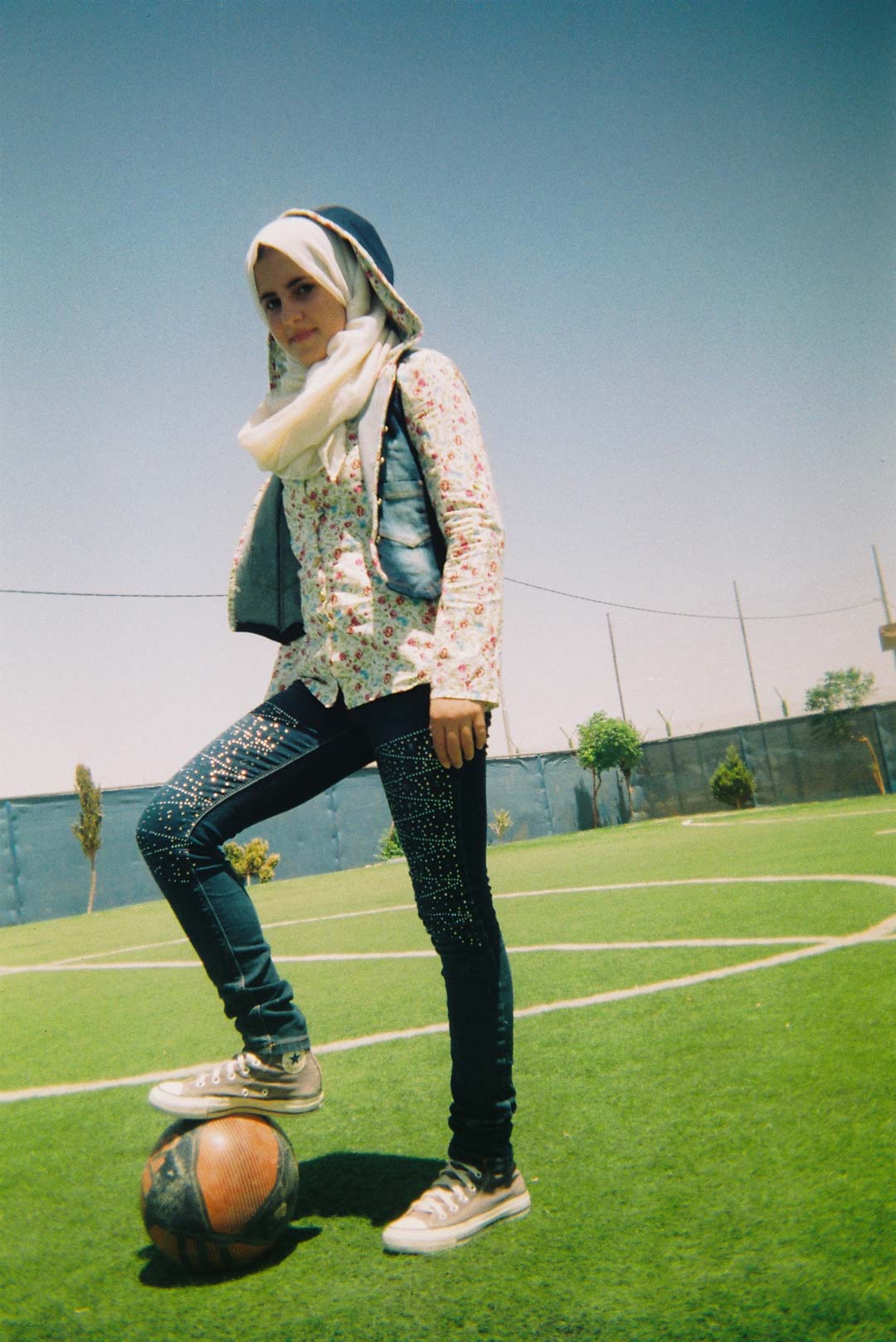
© Goal Click/UNHCR/UNICEF
© Goal Click/UNHCR/UNICEF
Photographic and written series from Goal Click with UNHCR, the UN Refugee Agency, chronicles personal stories from refugees and football’s role in helping to re-anchor lives and open paths to a brighter future
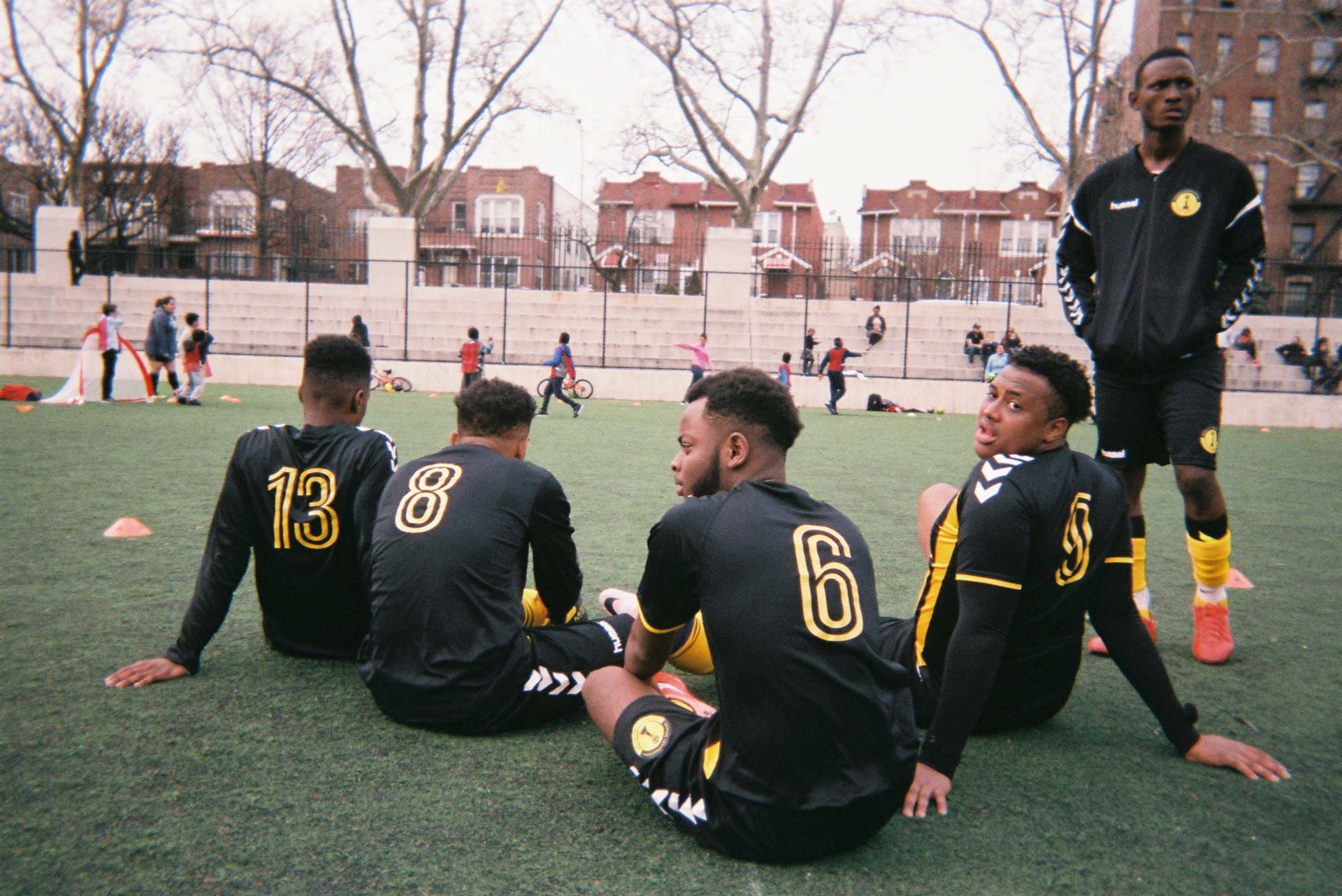
RIFA, Brooklyn, NYC. RIFA (Rooklyn International Football Association) is a Brooklyn-based organisation using soccer to work with refugee, asylee, and immigrant youth and provide a space for connection with their peers in a safe and supportive environment. © Goal Click/UNHCR/RIFA/Samuel Gedeon
From dust fields on the limits of Kenya’s Kakuma camp to astroturf in North-East England, asylum-seekers and refugees are increasingly embracing football, the world’s favourite sport, to help re-centre their lives after displacement, stay active, make new friends and connections and improve their skills and life chances.
Stories from some of these groups and inspirational individuals have been captured by Goal Click Refugees, a project which uses refugees’ own powerful photos and words to reveal the realities of their new lives and communities through the common language of football.
Goal Click gave each participant a disposable camera to highlight football’s role in their lives in settlements and urban locations including Jordan, Kenya, Malawi and Cameroon, as well as Western Europe, the US and Australia. UNHCR, the UN Refugee Agency, embraced the project as part of its work leveraging sports to improve the lives of displaced people as well their host communities.
“Football is the only constant in our lives,” said Daniele*, 24, a Syrian refugee-participant in Koblenz, Germany. “It doesn’t matter where you’re from or what you’ve been through, there’s always something you share with other people despite the differences. There’s always a part of you seeking peace, love and normality.”
Daniele’s love of football started as a student in Latakia, Syria, before the war forced him, and millions more, to flee. He studies IT at a university in the Rhine city, working as a waiter during vacations. He plays alongside asylum-seekers from Syria, Iran, Afghanistan, Somalia and Eritrea in a team organised by local club TuS Koblenz. He sometimes plays with Germans — whom he sees as “gentle and warm” — and loves the social outlet.
He still follows his hometown side but his real dream is spending a season watching AS Roma in the Stadio Olympico. “I started saving money for the trip, but it’s going to take a while,” he said.
Photo: © Goal Click/UNHCR
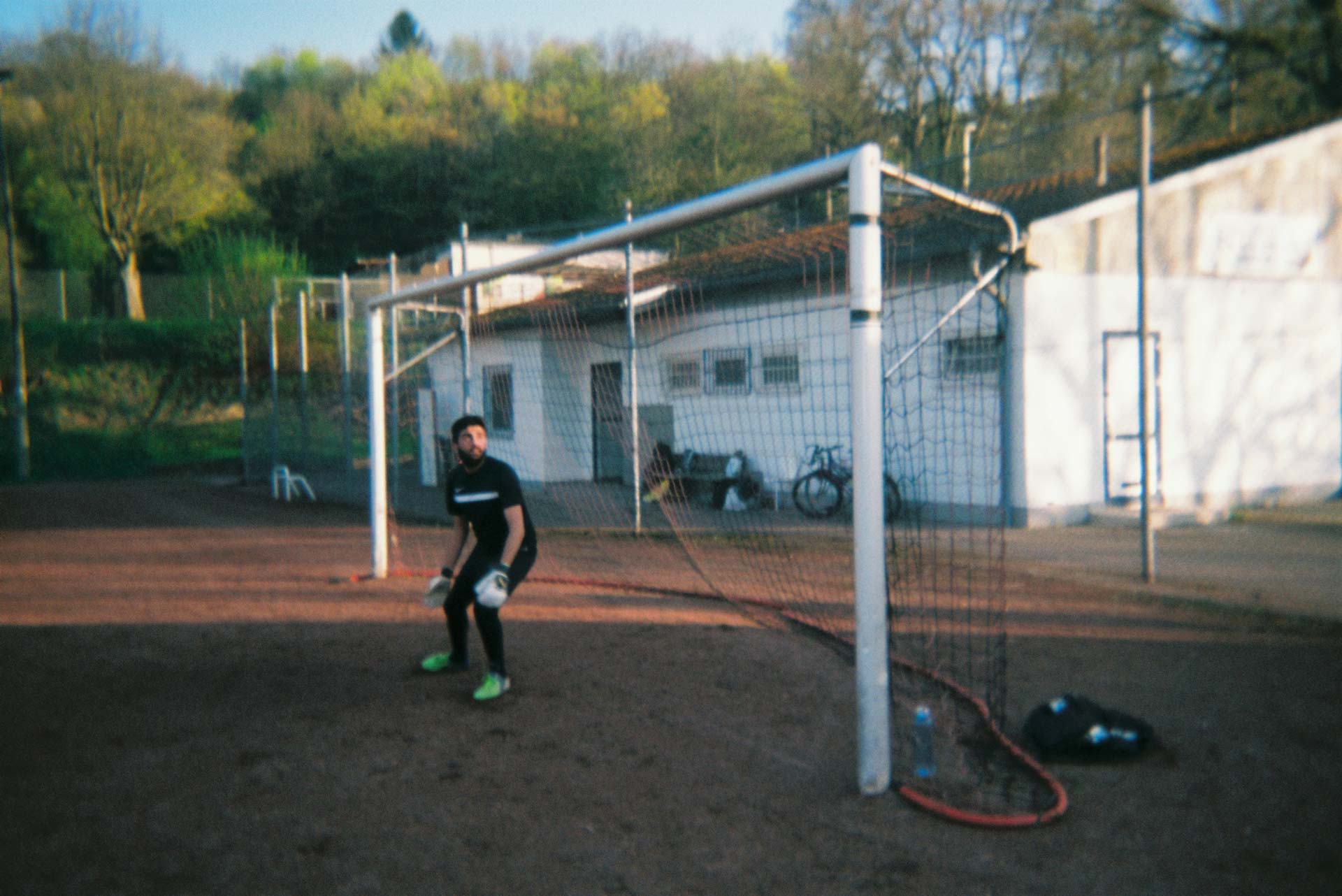
© Goal Click/UNHCR
“Football is the only constant in our lives,” said Daniele*, 24, a Syrian refugee-participant in Koblenz, Germany. “It doesn’t matter where you’re from or what you’ve been through, there’s always something you share with other people despite the differences. There’s always a part of you seeking peace, love and normality.”
Daniele’s love of football started as a student in Latakia, Syria, before the war forced him, and millions more, to flee. He studies IT at a university in the Rhine city, working as a waiter during vacations. He plays alongside asylum-seekers from Syria, Iran, Afghanistan, Somalia and Eritrea in a team organised by local club TuS Koblenz. He sometimes plays with Germans — whom he sees as “gentle and warm” — and loves the social outlet.
He still follows his hometown side but his real dream is spending a season watching AS Roma in the Stadio Olympico. “I started saving money for the trip, but it’s going to take a while,” he said.
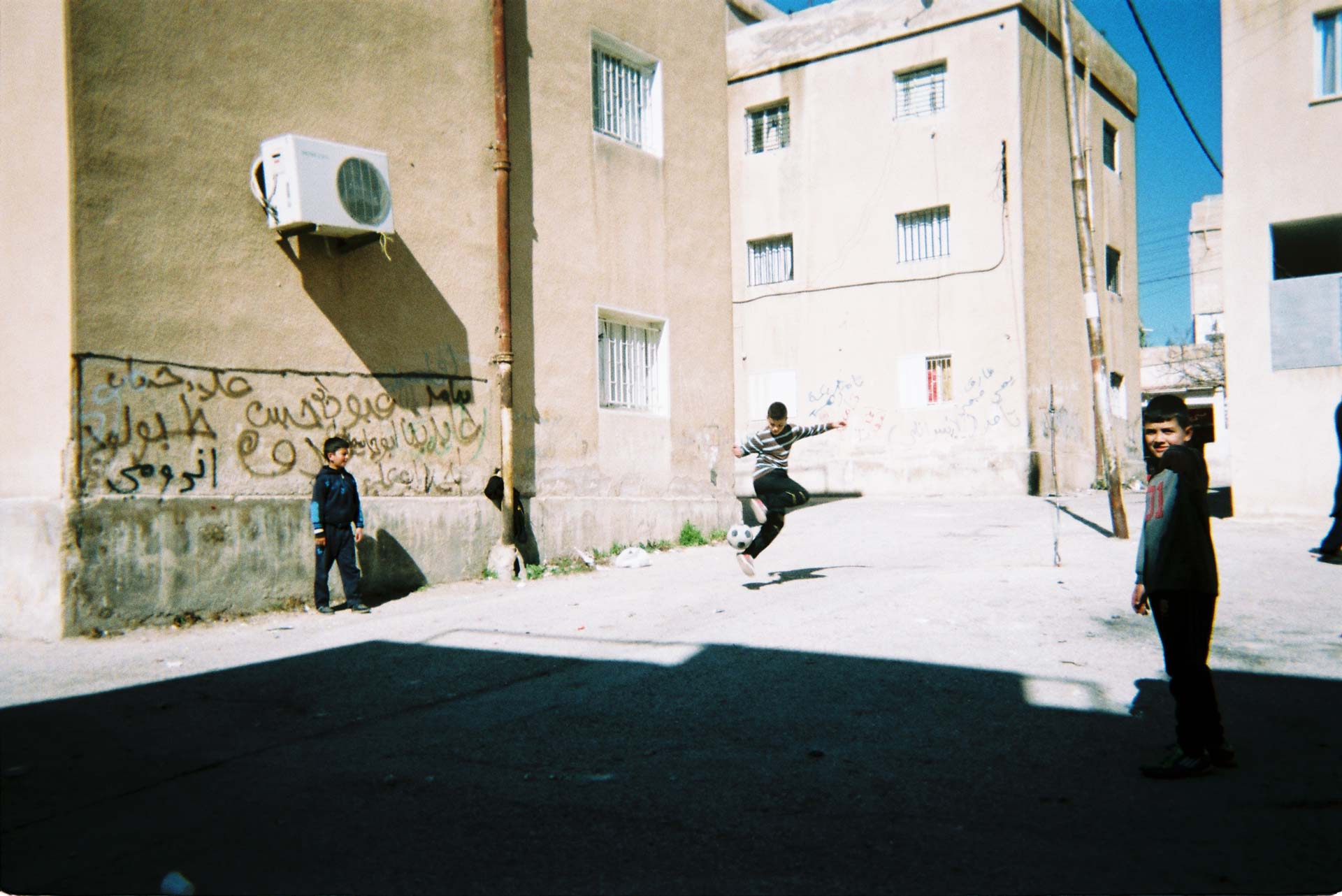
Children play football in the neighbourhood of Hashem Shemali, in East Amman. Many in the area have Palestinian heritage. © Goal Click/UNHCR/Abdelrahman Hasan al Attar
The Goal Click Refugees launch features unfiltered stories from more than 25 male and female refugees. The online series builds towards a physical exhibition during the EURO 2021 championships. New locations will be showcased in coming months; more than 60 stories in 20 countries are expected to be published, straddling the period before COVID 19 and after lockdowns have eased.
The snapshots demonstrate football’s power to convene and facilitate dreams. The common passion unites refugees on and off the pitch, helping them adapt, rebuild and – sometimes – lay paths to a brighter future.
Yvan Bikambo, a coach with Red Deporte, an NGO working at a school in Bindia, East Cameroon, told how football brings together refugees and locals. “In the classrooms, we have both Cameroonian and Central African children. And they play together during breaks. They also meet outside school,” he said, adding he tried to capture the “many beautiful colors and blue skies, which means hope and light to me.”
Photo: © Goal Click/UNHCR/Red Deporte/Yvan Bikambo
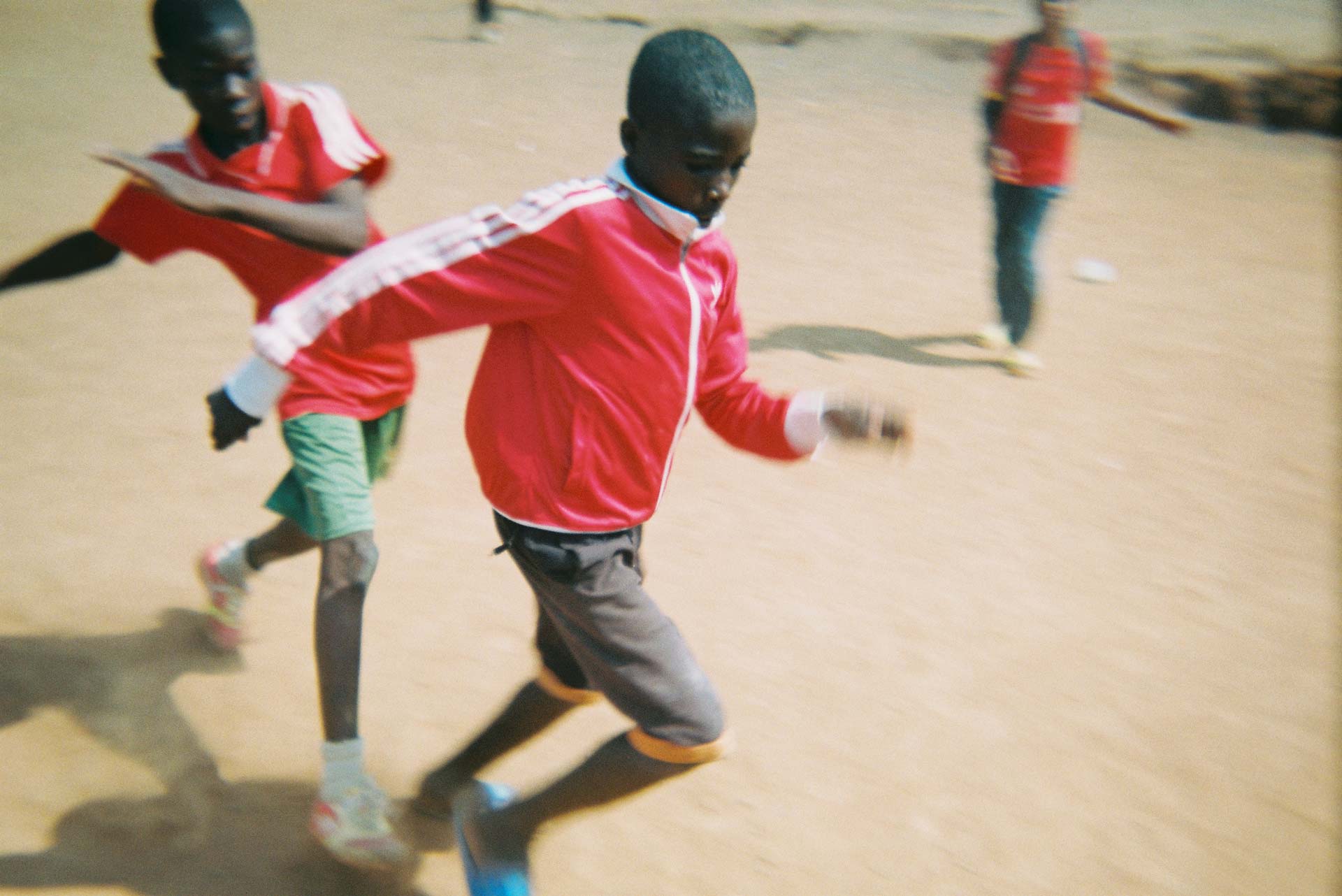
© Goal Click/UNHCR/Red Deporte/Yvan Bikambo
Yvan Bikambo, a coach with Red Deporte, an NGO working at a school in Bindia, East Cameroon, told how football brings together refugees and locals. “In the classrooms, we have both Cameroonian and Central African children. And they play together during breaks. They also meet outside school,” he said, adding he tried to capture the “many beautiful colors and blue skies, which means hope and light to me.”
Shegofa Hassani, an Afghan refugee in Australia, said football had helped changed attitudes among her own community. “A lot of people still don’t think Afghan girls should play sport, and this allows us an opportunity to prove them wrong and stay active and socially connected,” said Hassani, a Football United player and ambassador, who now leads the Sydney United Girls program.
“I want more Afghan girls to dream big and follow those dreams. Too many of our girls are not following their dreams because of cultural, family and financial barriers. We aim to eliminate barriers by building trust, being visible and doing our thing.”
Photo: © Goal Click/UNHCR/Football United/Shegofa Hassani
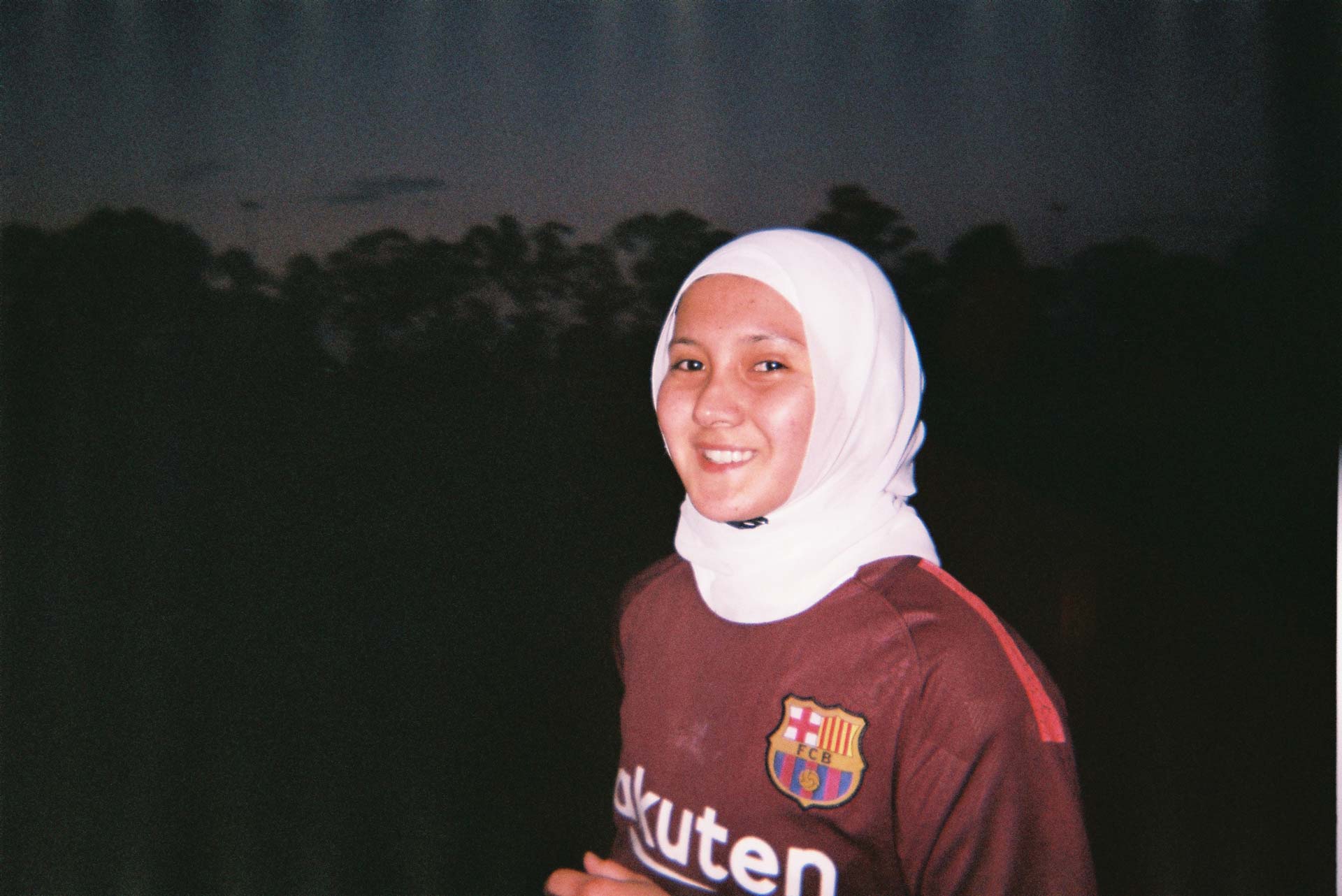
© Goal Click/UNHCR/Football United/Shegofa Hassani
Shegofa Hassani, an Afghan refugee in Australia, said football had helped changed attitudes among her own community. “A lot of people still don’t think Afghan girls should play sport, and this allows us an opportunity to prove them wrong and stay active and socially connected,” said Hassani, a Football United player and ambassador, who now leads the Sydney United Girls program.
“I want more Afghan girls to dream big and follow those dreams. Too many of our girls are not following their dreams because of cultural, family and financial barriers. We aim to eliminate barriers by building trust, being visible and doing our thing.”
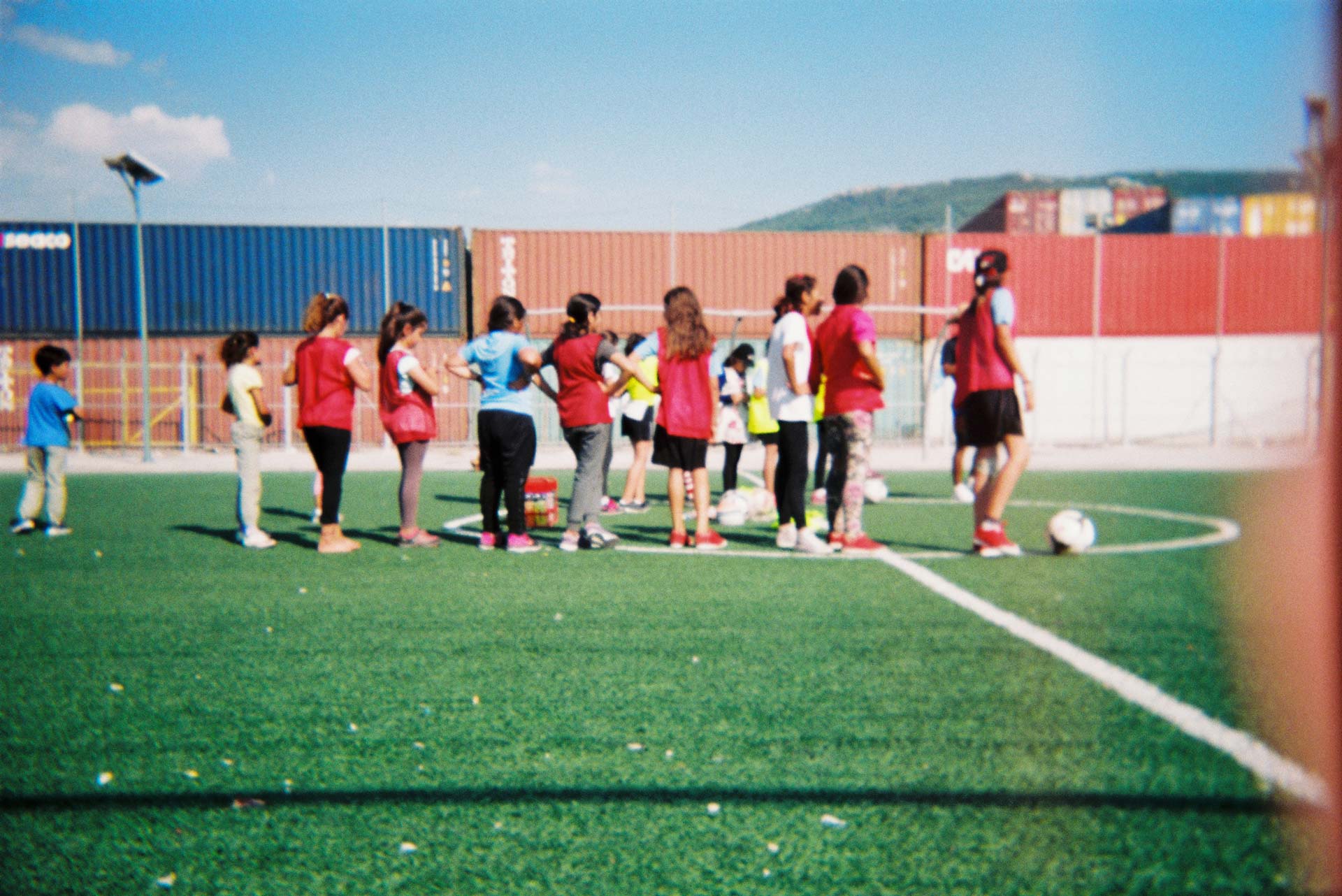
Skaramagas refugee camp, Athens. A football session for refugee girls. © Goal Click/UNHCR
The series is being released ahead of World Refugee Day on June 20 and helps highlight the rise in global forced displacement, as new and existing conflicts compel more people to make dangerous journeys to save their lives.
In Kenya’s Kakuma camp, Carlos Gatlliah, 25, who fled his native South Sudan, is a sports coordinator and peer counsellor. He hopes his experience will help him become a psychologist.
“I would like to go back home and help people with trauma and stress from the war in the healing process, as well as rebuild the country.”
Photo: © Goal Click/UNHCR/GIZ/Carlos Gatlliah
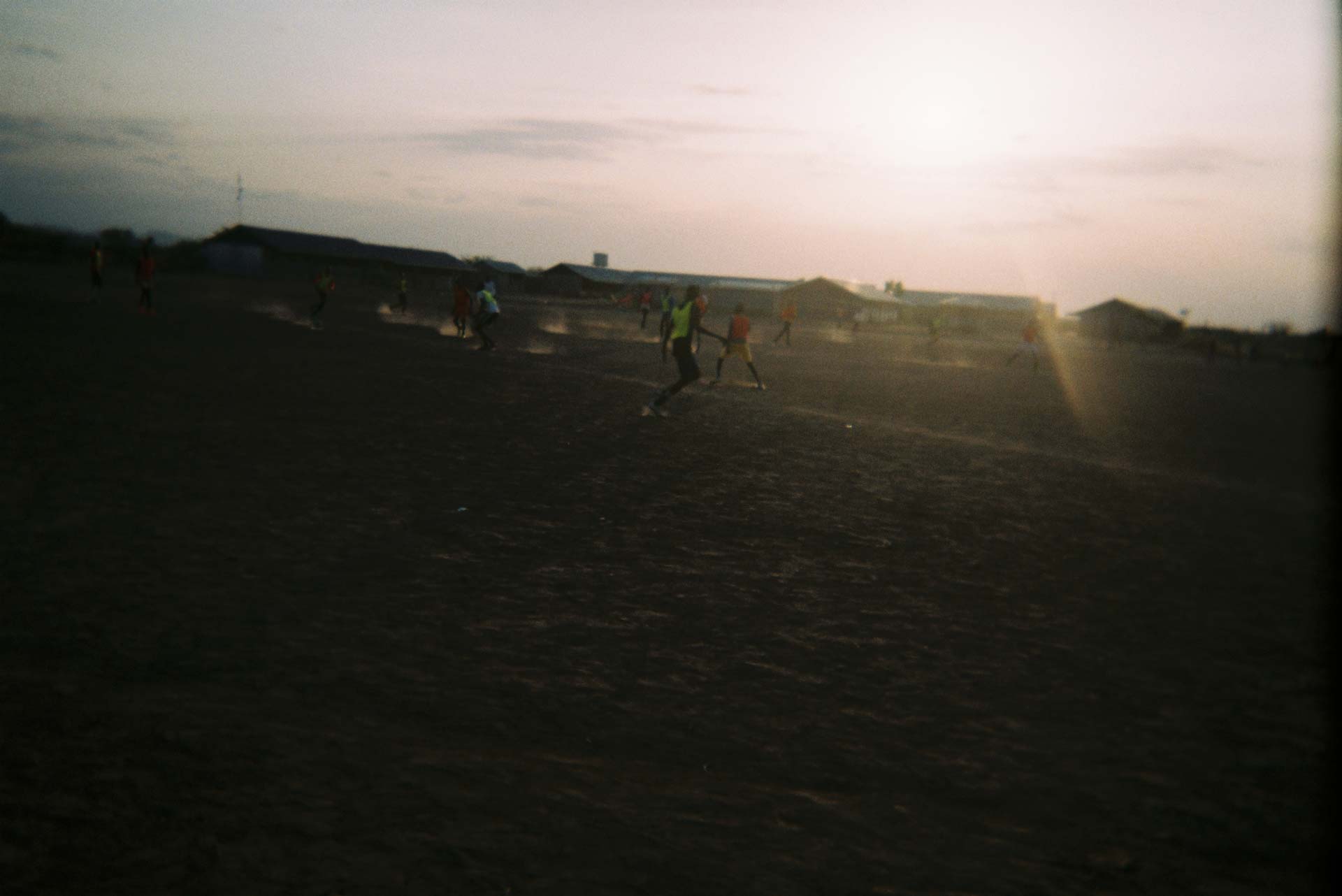
© Goal Click/UNHCR/GIZ/Carlos Gatlliah
In Kenya’s Kakuma camp, Carlos Gatlliah, 25, who fled his native South Sudan, is a sports coordinator and peer counsellor. He hopes his experience will help him become a psychologist.
“I would like to go back home and help people with trauma and stress from the war in the healing process, as well as rebuild the country.”
Mahmoud, 19, a Syrian from the Zaatari camp in Jordan, said: “I can’t even spend one day without doing sports or playing football. It’s one of my stress release methods.”
He is a football coach at the Zaatari Olympic Committee. In 2017, he was chosen in an initiative to train in Qatar and has played for top Jordanian sides Al-Hussein SC (Irbid) and Mansheyat Bani Hasan. He realises his position is privileged, allowing him to escape the drudgery of camp life, even if only for some hours.
With his pictures, he tried to show,
“how people love sports … but also how they suffer because they don’t have equipment and training shoes. Football is really important and the community cares.”
Photo: © Goal Click/UNHCR
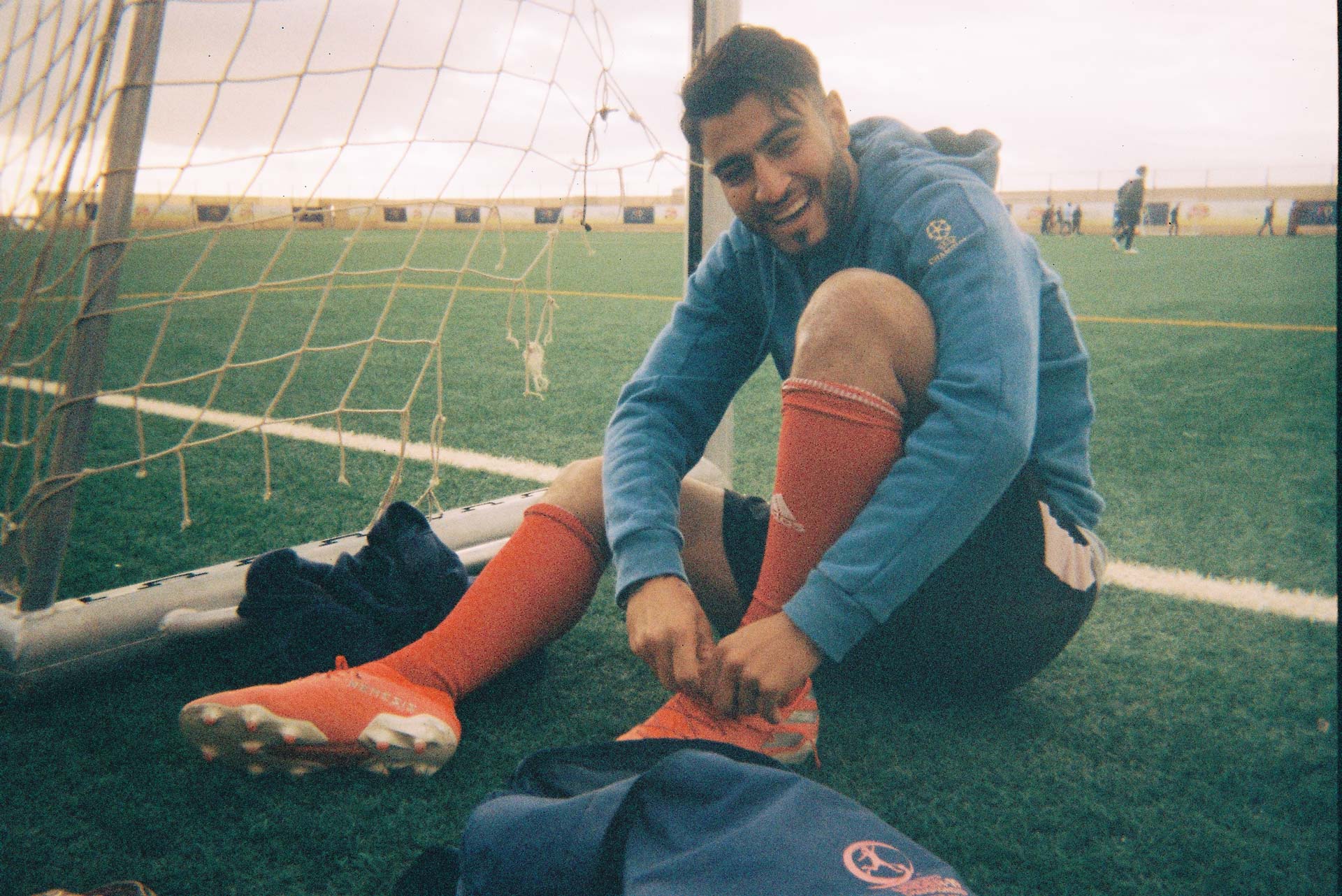
© Goal Click/UNHCR
Mahmoud, 19, a Syrian from the Zaatari camp in Jordan, said: “I can’t even spend one day without doing sports or playing football. It’s one of my stress release methods.”
He is a football coach at the Zaatari Olympic Committee. In 2017, he was chosen in an initiative to train in Qatar and has played for top Jordanian sides Al-Hussein SC (Irbid) and Mansheyat Bani Hasan. He realises his position is privileged, allowing him to escape the drudgery of camp life, even if only for some hours.
With his pictures, he tried to show,
“how people love sports … but also how they suffer because they don’t have equipment and training shoes. Football is really important and the community cares.”
Among the other stories is that of Sadio Malang, from Senegal living in Turin, where a programme run by Balon Mundial Football helped him make new friends and find a job, while finishing an electronics course at night school.
Photo: © Goal Click/UNHCR/Balon Mundial/Sadio Malang
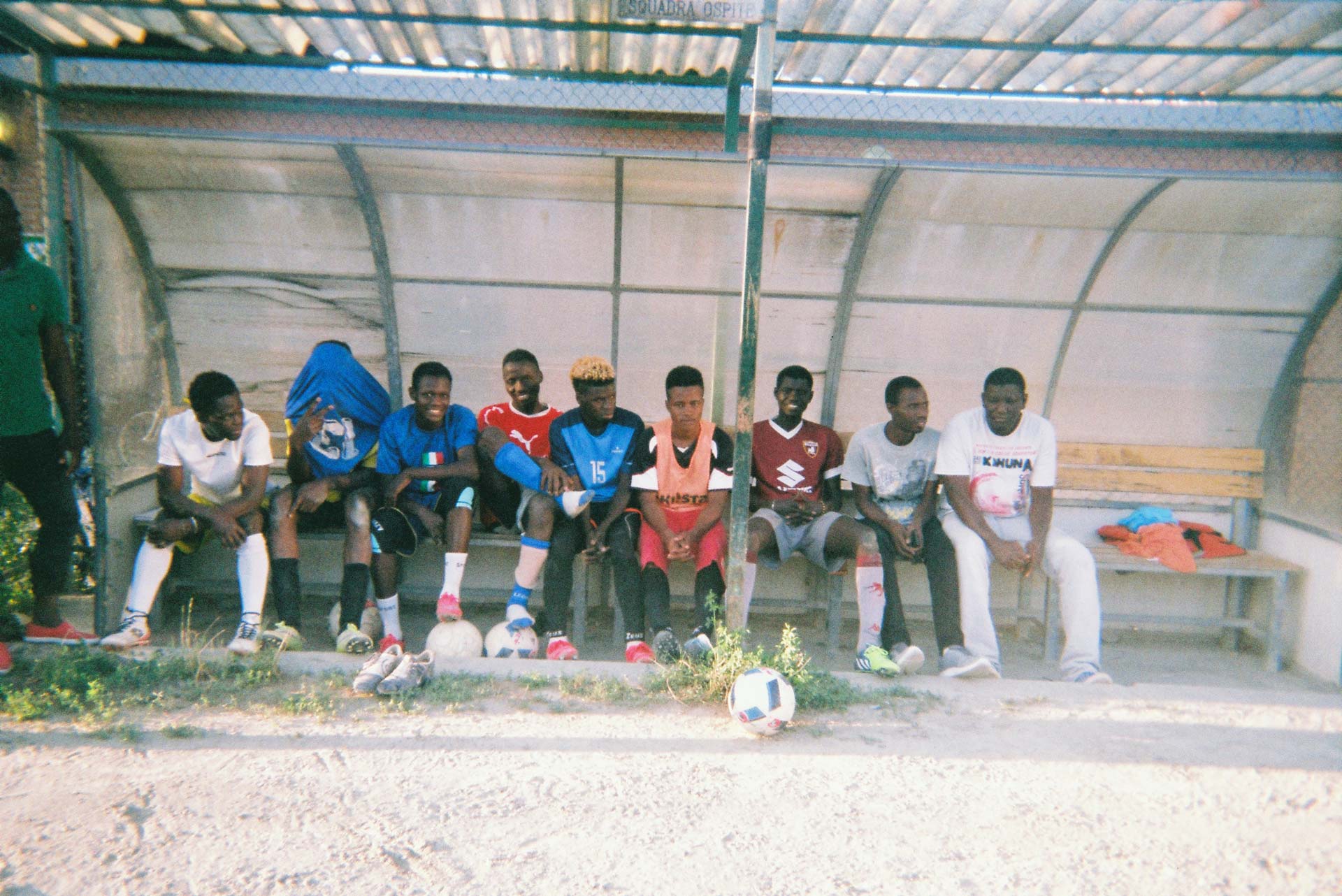
© Goal Click/UNHCR/Balon Mundial/Sadio Malang
Among the other stories is that of Sadio Malang, from Senegal living in Turin, where a programme run by Balon Mundial Football helped him make new friends and find a job, while finishing an electronics course at night school.
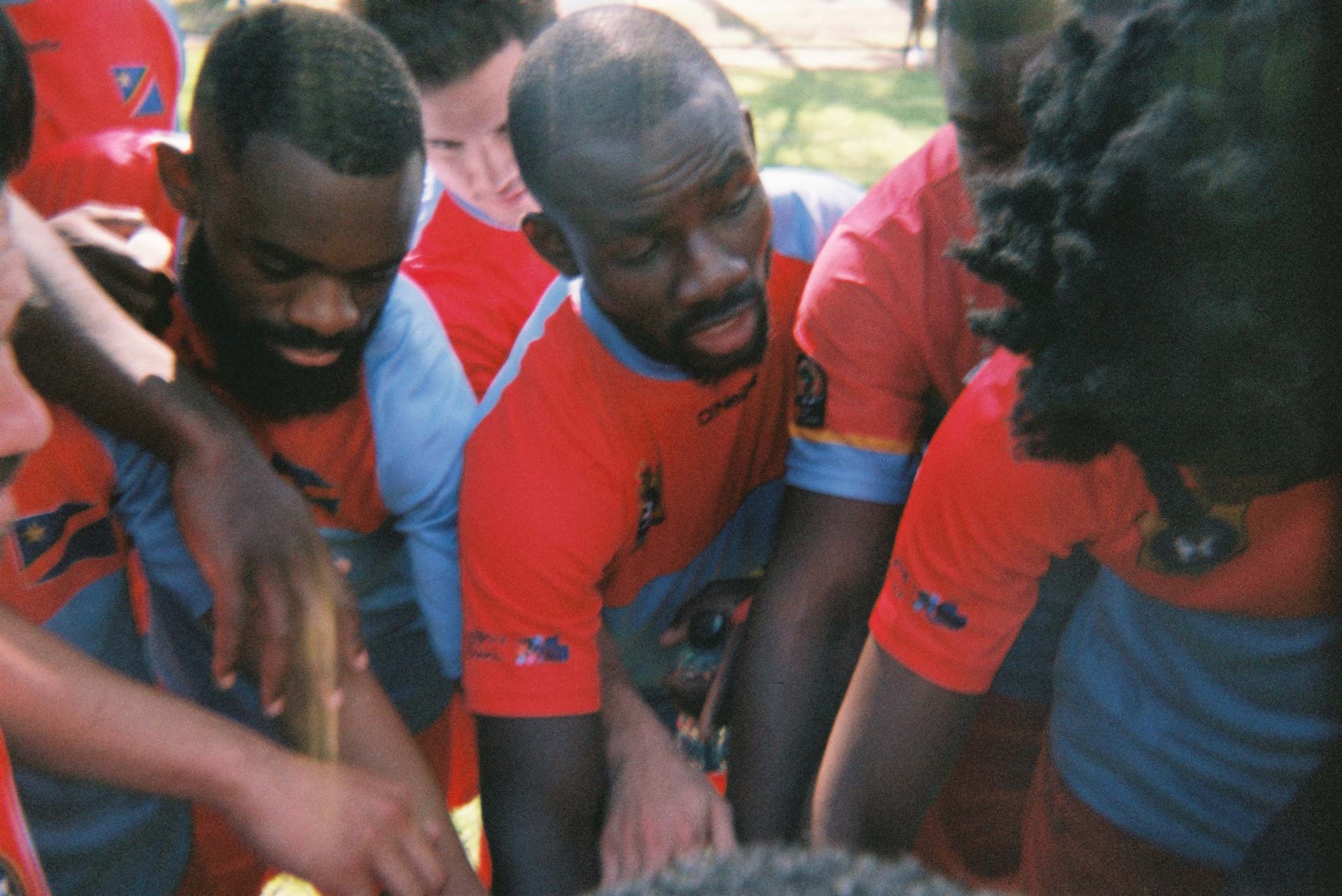
Football United, Sydney. Team Congo during their quarter final clash as part of the African Cup tournament in 2018. © Goal Click/UNHCR/Football United/Bahram Mia
The project was made possible by NGOs including GIZ, UNICEF Jordan, the British Red Cross, Balon Mundial (Italy), Green Kordofan (South Sudan), Ascent Soccer (Malawi), Kicken ohne Grenzen (Austria), FAULU (Kenya), Red Deporte (Cameroon) the Middlesbrough FC Foundation (UK) and Football United (Australia).
The campaign will include fund-raising links to UNHCR and Common Goal, a global football charity.
